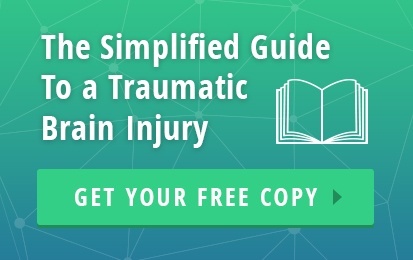Rife with uncertainty, a coma is one of the most frightening injuries, at least in part because it robs you of the ability to communicate with your loved one in the coma. The good news is that people can and do survive comas. In fact, a coma is said to be the body's way of protecting the brain and other vital structures from catastrophic damage after a serious injury.
What is a Coma?
People in comas appear to be in a deep state of sleep, but they cannot be woken through normal means, and their brain activity is minimal. We can't know for sure what people in comas experience, since most people who awake from comas have no memory of what they have been through, and there is no way to judge a coma patient's subjective experience of his or her coma. Brain scans suggest that it is unlikely that a person in a coma dreams or feels pain. However, as people come out of comas, they may begin to regain some consciousness, straddling the border between a comatose state and sleep.
Some people in comas can breathe on their own, and many comatose patients retain basic reflexes. However, a person in a coma cannot move voluntarily, so any movement is a sign of reflexive actions, not conscious behavior.
An ongoing debate centers around whether people in comas have any awareness of loved ones in the room. Though most objective evidence suggests that they do not, anecdotes from loved ones of comatose patients suggest changes in behavior. Some people even claim to remember interactions with loved ones upon waking from a coma. Though there is no proof that this actually occurs, there is no harm in talking to or providing other loving support to a loved one in a coma.
Because a coma is a state of minimal consciousness that demands little of the body, even very sick people may remain in comas for months, or even years.
How Are Comas Assessed?
Although outwardly all comas look the same, doctors actually assign scores to comatose patients using the Glasgow Coma Scale. Doctors look at several key criteria:
- Motor responses: Measured on a scale of 1-6, with 6 being normal, and 1 being none.
- Verbal responses: Measured on a scale of 1-5, with 5 being normal and 1 being none.
- Eye opening: Measured on a scale of 1-4, with 4 being normal, spontaneous eye movements and 1 being no eye movements at all.
The higher the score, the less severe the coma is, and the more likely the patient is to awaken. Eighty-seven percent of people who score 11 or higher will awaken and recovery, while 87% who score four or lower remain in a coma or other vegetative state.
Medically Induced Comas
Most comas are spontaneous, resulting from head or other serious injuries. But occasionally, doctors use a range of anesthetics to medically induce a coma. These comas protect the brain from serious injuries, especially when there is extensive swelling. Most medically induced comas are brief, and doctors only use this strategy after attempting and failing at less aggressive treatment methods. Sometimes, doctors induce a coma in the hopes that the patient's immune system will fight off an infection or disease that antibiotics or other drugs have failed to fight.
Doctors bring patients out of their comas as quickly as they can, again using a combination of medications. The after-effects of a medically induced coma can last for days or even weeks, particularly when the coma coincides with a brain injury.
The After-Effects of a Coma
The effects of a coma depend on two factors: the patient's overall health before the coma, and the effects of the coma itself. Comas due to head or spinal cord injuries may demand months of extensive recovery, and patients may never again regain full function. If the brain is not damaged, patients may feel groggy for a few days after the coma, and may also need psychological support to recover from the stress and trauma of the comas itself.
Many people who survive comas need extensive medical treatment, including physical, speech, and exercise therapy. Some have full or partial amnesia for the event that led to the coma, and others experience changes in personality. Support groups and psychotherapy can help, but slow and steady progress—particularly with the support of a knowledgeable medical team—is possible even after long comas and severe head and spinal cord injuries.






